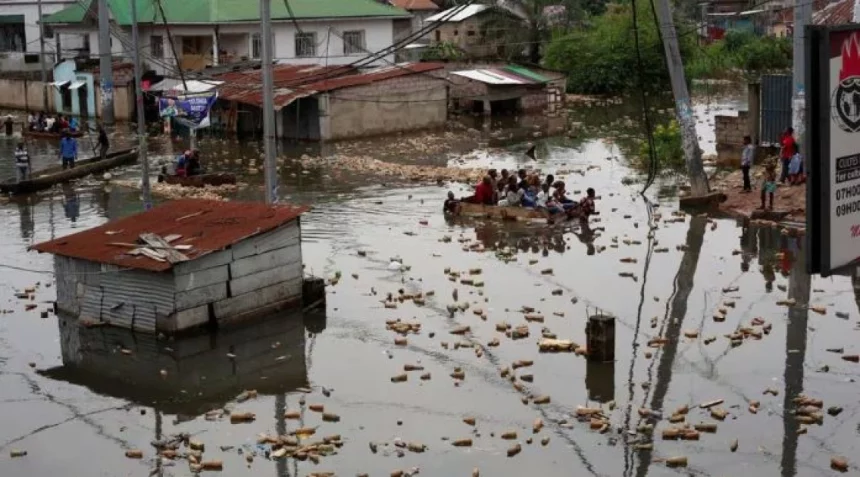The Congo River has risen to its highest level in more than 60 years, causing flooding throughout the Democratic Republic of Congo (DRC) and Congo Republic that has killed more than 300 people over the past months, according to authorities.
Poor urban planning and weak infrastructure have made some African countries vulnerable to flash floods after intense rains, which have become more frequent due to climate change.
Ferry Mowa, a hydrology specialist at the DRC riverways authority, part of the transport ministry, said his office had flagged the high water level in late December, warning that almost the entire flood plain of the capital Kinshasa, which sits on the banks of the river, could be affected.
On Wednesday, the river reached 6.20 meters above sea level, just shy of the 1961 record of 6.26 meters, he told Reuters, adding that the flooding had followed exceptionally high rains inland.
“It is imperative that people who live around the river move”, Mowa said.
Several neighbourhoods in DRC’s densely populated Kinshasa have flooded, as well as communities in more than a dozen provinces, the social affairs ministry said.
Nearly 300 people have died and 300,000 households have been affected, with tens of thousands of houses destroyed, it said in a statement last week.
In neighbouring Congo Republic, whose capital Brazzaville also sits on the banks across the river, at least 17 people have died in floods across eight departments including the capital, with more than 60,000 households affected, authorities told Reuters.
NO PREVENTION PLAN
Some residents use shovels to paddle their way through flooded streets where water had risen to the roof level of some homes.
The flood water have also swept thousands of discarded plastic bottles and other debris that now clog streets.
In the Ngaliema municipality in western Kinshasa, the home of local resident Helene was plunged under water.
“I’ve lived in this neighbourhood since I was born and I’ve never experienced such an event, but I don’t have the means to go and live elsewhere,” she said.
Raphael Tshimanga Muamba, director of a Congo Basin research centre in the DRC, called for a fund to help manage natural disasters and adapt to climate change.
He said DRC has no flood disaster prevention plan.
“I am not surprised to see that the water level is increasing to this extent,” said 18-year-old climate activist Ketsia Passou.
“What surprises me the most is the silence of the authorities in helping these families who are suffering the effects of climate change.”
DRC’s social and humanitarian affairs minister, Modeste Mutinga, told Reuters that a meeting will be held on Thursday to evaluate further humanitarian aid.



